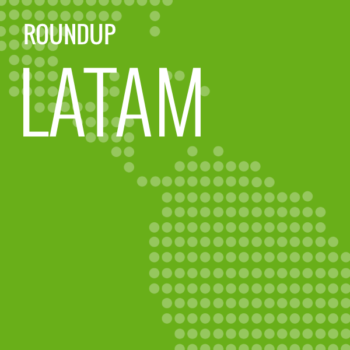Adsmovil Doubles Revenues in Brazil; Brazilian E-commerce Grows by 7.5% Despite Crisis
by on 29th Aug 2017 in News

In this week's LATAM Roundup: Colombian mobile ad tech company Adsmovil consolidates international operations in Latin America, doubling business in their biggest market, Brazil; Despite economic crisis, e-commerce in Brazil grew by 7.5% in the first six months of 2017, compared to the same period last year, reaching R$21bn (£5.14bn); and, finally, an Ibope Media research reveals that 59% of the Brazilian audience trust news websites when the publisher has also a print edition, doubting content published on regular websites, blogs, or social media pages.
Colombian Adsmovil registers growth in LATAM
The Colombian mobile ad tech Adsmovil consolidated their international operations in Latin America with growth in all countries in which it has business. In Brazil, sales in the first semester doubled when compared to the same period last year. Argentina and Chile, on the other hand, had even a bigger increase, growing the sales by 186%. Finally, Mexico saw its sales grow by 48% in the same period.
“Even though Latin America has political and currency problems, we saw a considerable growth. We are very happy with Brazil's results, particularly, because it is the biggest market in the region”, said Alberto Pardo, CEO and founder, Adsmovil. The company has been operating in the country for three years, where it has signed important partnerships with other business in the sector such as Factual, Celtra, Glispa, Rabo, Sizmek, MOAT, and AppsFlyer.
“Countries like Brazil and Mexico are at the lead of programmatic media and their growth is noticeable. Markets like Argentina and Chile understand that the appropriate use of mobile tech bring better results to their digital campaigns”, highlighted Pardo.
Despite economical downturn, e-commerce increases by 7.5% in Brazil
The Brazilian economy is not growing as steadily as in the past years. Yet, e-commerce data shows a positive result: in the first semester, revenues grew by 7.5%, compared to the same period last year, reaching R$21bn (£5.14bn), according the the latest Webshoppers report, by Ebit.
The first six months of the year also had the number of purchases grown by 3.9%, whereas the average ticket increased 35.5% to R$418 (£102). According to Ebit, those numbers could have been even better if the overall prices found in internet sales had not decreased by 5.38% in the past 12 years, as registered in the latest FIPE Index.
Sales via marketplaces are among the main highlights of the performance in 2017, as well as mobile sales. Despite desktop sales representing more than 75% of all e-commerce, smartphone usage has jumped 56.2% in the period. Considering tablets and smartphones, 35.9%.
“The data shows that that consumers keep investing in modern devices, with more features, enabling this behaviour change”, said André Dias, COO, Ebit. At least 25.5 million consumers bought at least one item in the first semester of the year in Brazil, a 10.3% increase.
Traditional print publishers drive online subscriptions
Ibope Media research revealed that 59% of the Brazilian audience trust news websites when the publisher has also a print edition, doubting content published on regular websites, blogs, or social media pages. In an interview with Propmark, Ricardo Pedreira, executive director, National Newspapers Association in Brazil (ANJ, in Portuguese), emphasised that the credibility of print publishers was built with time – so this quality is also seen online.
Consequently, when it comes to online subscription, traditional media players are in advantage. O Globo newspaper, for example, has 80% of their subscribers receiving the print edition, and even the most loyal digital consumers are the ones who have migrated from print to digital. The publisher has recently unified the titles of their media in a single digital subscription, and dealing with the challenge of the internet media model. Yet, subscriptions are not the main revenue stream – advertising supports 70% of the publisher’s expenses.








Follow ExchangeWire